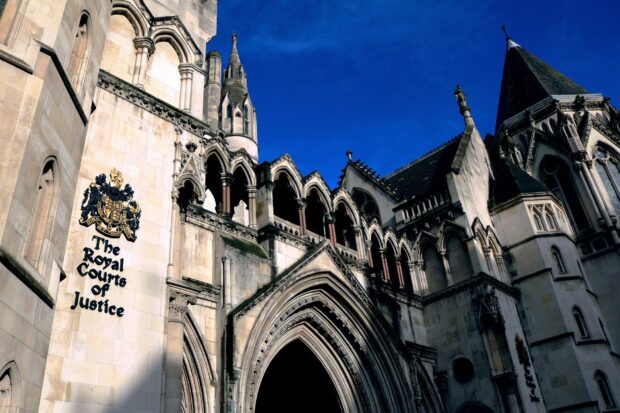
This month (November 2019) we won a landmark case in the High Court. For the first time, we made an application for a finding of contempt of court, after trustees repeatedly failed to comply with Commission Orders seeking information required for our investigation into serious concerns at the charity.
The Court ruled in our favour, finding two former trustees of the Darren Wright Foundation, guilty for failing to comply with an order to supply evidence and documentation to our statutory inquiry.
Going to court is not something we do flippantly, but it was right here that we challenged individuals that are the subject of serious concerns about the management and governance of this charity set up to support families in need.
Importantly, charities can challenge our actions too. If a trustee thinks our decision to disqualify them was unfair, or an applicant considers that we were wrong not to register their charity, they can appeal about our decision to the First Tier Charity Tribunal.
The Tribunal is an important safeguard that allows charities, and the public, to have confidence in our actions. It holds us to account on ensuring all our decisions are properly thought out and considered, always subject to robust internal challenge and scrutiny.
Decisions we make won’t always be liked by everybody – particularly those affected by them. But they should always be made in the public interest, whether about protecting the boundaries of charity, holding people to account, or rooting out people from the sector that have sought to abuse their positions.
Recently, in the case of Rhema Church London, the Tribunal upheld our disqualification of a church pastor who had misused the charity’s credit card, wrongly influenced members of the congregation, and defied a court injunction.
Charity trustees hold important positions of trust, and should demonstrate the highest standards of honesty and integrity, so we were confident of our decision to prevent him from acting as a charity trustee or senior manager for 10 years.
The Tribunal’s unanimous dismissal of the appeal reaffirmed that we were right to take this step, but in a free and fair society, it’s also right that the individual had the opportunity to challenge it.
The use of our protective powers can also be challenged. This month a trustee took issue with our appointment of an interim manager to The Alternative Animal Sanctuary, and specifically our decision to vary that appointment so that the interim managers could take steps to wind up the charity.
After careful assessment they concluded that the charity was no longer viable, as a result of serious longstanding governance and management issues. Some animals were taken into care by the RSPCA.
In another case, the Tribunal ruled that we acted appropriately by freezing two third party bank accounts, protecting charitable funds belonging to Enfield Island Village Trust. It was being argued that the account fell outside our remit, but our investigators had established that the funds belonged to the charity.
Both appeals were heard before the Tribunal, who looked at all the evidence, heard from appellants, and in making a fresh decision, concluded that our actions were right.
We don’t win every time - the Tribunal keeps us on our toes, and there are often useful learning points even when it rules in our favour. But our record of success in the chamber demonstrates that we take decisions with great care and consideration, within the boundaries of a clear legal framework.
The Tribunal shines an important spotlight on our work, and the scrutiny it offers is respected right across the Commission – many of our caseworkers have gone before the judge to give evidence on their unique insights of a case or a particular issue.
We are an accountable public body, and so every day I impress upon my teams the importance of us being able to justify the use of our powers. Not so that we can keep winning in the Tribunal, but so that everyone who cares about charity can have confidence in our work.
As a regulator, our legitimacy is judged by the quality of our decision-making. We want charities to make good decisions so that they can inspire trust and do good work for the benefit of society. The Tribunal, rightly, ensures that we do so too.